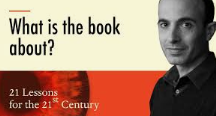Contents
In our daily routines and rush, we forget to question the meaning of life. We question where we came from, why we are in this world and where we are going only when we lose someone we love. However, this questioning usually does not last long. Just as we forget to question these, we also do not question issues such as the past, present and future of the world because of our daily routines. Noah Harari, the author of the other two best-selling books we reviewed before, Sapiens and Homo Deus, reminds us to question the present in his work 21 Lessons for the 21st Century, which is the subject of this article.
In his first book, Homo Sapiens, published in 2014, the author explains how humanity transitioned from a hunter-gatherer society to a settled life with the cognitive revolution, to an agricultural society and from there to the industrial revolution and how it established civilizations.
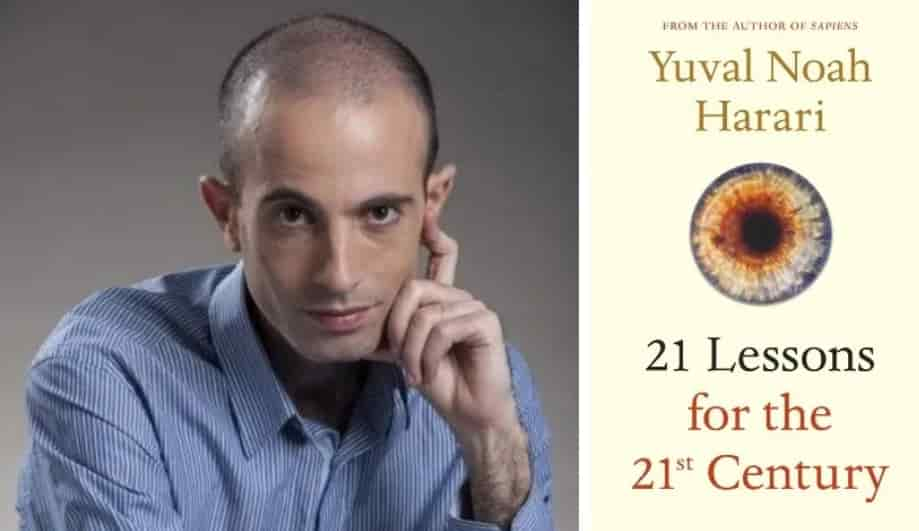
Later, in his work Homo Deus, published in 2016, he explained that in the future, humanity will transform into a divine creature seeking immortality through the collaboration of technology and biological engineering. In this context, in his book 21 Lessons for the 21st Century, published in 2018, he stated that it is now time to talk about today. In other words, according to him after questioning the past and the future, it is time to talk about today. At this point, we need to question the present where technology is rapidly flowing and transforming the world as well as the past and the future.
The Core Messages of 21 Lessons for the 21st Century
According to the book, when we were a hunter-gatherer society, when owning property was seen as a burden and the need to “own” properties was not felt, people were happier. Then someone came and fenced an area and said “this is mine”. Actually, it was at the starting point of liberal democracy and wars. With instinct of gaining more private property, societies aimed to grow by seizing what the other had. Thus, the conflict economy began until at the end of World War II.
After this process that led to the deaths of a hundred million people, the system we call liberal democracy became the only functioning system left after its rivals, communism and fascism, collapsed. It is necessary to think about this process while reading this book. This book, which is approximately 340 pages, basically aims to bring new generation solutions to the unique problems of the 21st century. As you can appreciate, the solutions developed by the agricultural society against the problems it faced had become useless with the industrial revolution. Similarly, the solutions developed by the industrial age have become invalid in today’s age of technology and productive artificial intelligence.

At this point, according to the author, if humanity does not come up with solutions to the big and new problems it is faced with, it is very unlikely to see the next century.
According to him, the three biggest problems are as follows:
– Climate Crisis and Global Warming
– Nuclear Weapons and the Risk of a new World War
Key Lessons on Ethics, Freedom, and Globalism
- Technological Disruption: Harari is quite pessimistic about it. In his interviews, he shows that the reason for this is that other people are optimistic enough about this issue. In other words, according to him, everyone already points out the positive aspects of technological development and generative artificial intelligence (Open AI). As a historian, he states that he wants to bring the negative aspects of technology to minds so that humanity can at least think about them. In this context, in an interview, he explains this situation by saying, “The Industrial Revolution was a wonderful thing and made great contributions to humanity. On the other hand, more than a hundred million people died in two world wars because of it.”
At this point, it should be noted that technological disruption will not be the only determining factor. When used together with the biological engineering that developed with it, it will have much more devastating results. Just think, artificial intelligence that knows you better than you know yourself and can even manage your emotions through chips and sensors that will be placed in your body will sound scary.
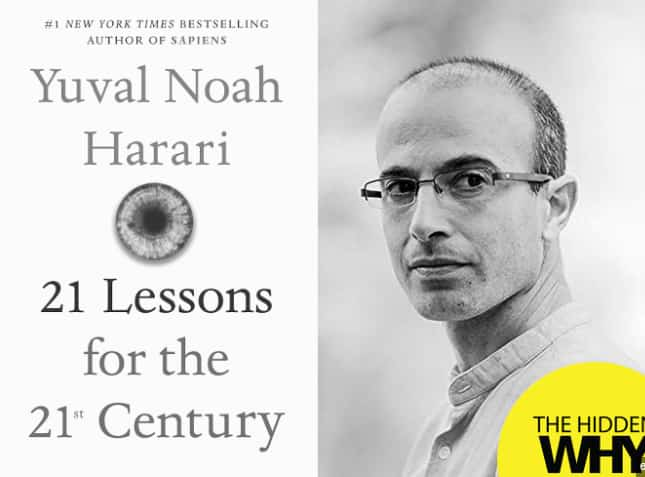
- Climate Crisis and Global Warming: The subject is a global problem. In this context, common solutions to global problems should be developed with international cooperation. According to 21 Lessons book, the continuation of the world and civilization depends on the actions to be taken on this issue. If issues such as reducing the carbon footprint, ensuring green energy transformation and especially the widespread use of electric vehicles are not provided, humanity will face a serious climate crisis in the next century.
Are Nuclear Weapons Coming?
- Nuclear Weapons and a new World War: The subject is quite complex. The cold war climate and nuclear arms race that emerged after World War II ended with the collapse of the Soviet Union in the early 1990s. With this development, the western world in particular took a deep breath, thinking that the risk of nuclear war that had lasted for many years was over. On the other hand, as our author constantly states, “We should never underestimate the stupidity of people.”
As we have stated before, unlike his other two books, the work titled 21 Lessons for the 21st Century addresses the problems of today and the near future. In other words, you will find answers to the questions of what should be on the agenda of the world and the human species right now and how we should raise our own children and what we should teach them in order to be happy in the future in this book. In this context, the nuclear threat still continues and the tension between the BRICS countries and the Western bloc in the context of Russia-Iran-China continues.
Why 21 Lessons for the 21st Century Is Essential Today
The book 21 Lessons for the 21st Century consists of five main sections. In addition, each section contains subheadings on contemporary social, political and cultural issues such as the labor market, freedom, equality, civilization, religion and nationalism. In each section, the author addresses certain issues and seeks solutions to today’s problems through the connections he establishes between the past and the future.
The sections of the book are as follows:
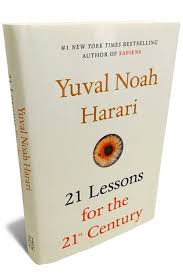
1- Technological Challenge
2- Political Challenge
3- Hope and Despair
4- Truth
5- Resistance
We think it is crucial to briefly touch on the most important of these headings and subheadings. For example, the heading of technological challenges resembles technological disruption. Here, Yuval Noah Harari talks about the difficulties that people will experience due to the extension of human lifespan and dizzying technological change. In other words, for example, he states that while a truck driver used to complete his life with a single profession, he will now need to learn a second, new model profession after the age of 45 due to artificial intelligence and autonomous vehicles or robots doing this job.
According to him, yes, some professions will die, but for people who constantly renew and improve themselves, much more different and new professions will emerge. Let’s also state that our author is a conscientious person and recommends a minimum world citizenship salary for people who cannot renew themselves. After all, not everyone will be able to achieve this change and transformation. Those who cannot achieve this will need to have a certain minimum income level in order not to harm both themselves and society if they become unemployed.
Global Solutions for Global Problems
In another subheading, our author surprisingly touches upon the importance of nationalism. In other words, according to him, if there is no national consciousness, people will not want to pay taxes for the health and security expenses of other people they do not know. Additionally, he emphasizes that a positive nationalism will be beneficial both individually and socially.
As we have mentioned before, N. Harari, who touches upon the importance of national feelings, also emphasizes that international assistance and cooperation are needed with a global perspective in solving the three problems he sees as the world’s biggest problems.

Harari’s Ideas on Technology, Politics and 21 Lessons
This book also provides an answer to the question mark in everyone’s mind. In other words, yes, nationalism is beautiful and pushes societies to be self-sacrificing. On the other hand, the ways to determine the border between fascism and nationalism should also be known. This thin line should not be crossed. On this subject, our author defines a kind of border and measure by saying, “When you say my nation is unique and I need to help it, you become a nationalist; when you say my nation is superior to everyone else and others are unimportant, you become a fascist.”
Because, if the borders of this idea, which caused a world war and dragged millions of people to death, are not determined, it will cause great dangers again and again in today’s world where the far-right is on the rise. Finally, let’s add to this subheading that, as a sociological fact, patriotism and nationalism keep societies together, while extremism and exceeding the borders in these feelings can lead to a dangerous and deadly ideology like fascism.
Our author also breaks our thoughts and taboos on the subject of terrorism. In this book called 21 Lessons, Harari states that the only weapon of terrorism is “fear” and that it only governs people through this feeling. In other words, if we as a society remain under the influence of this black propaganda, terrorism will have achieved its goal. What he suggests to us is to continue our lives bravely without giving in to this fear.
On the other hand, he emphasizes that the world is less conflicted today thanks to liberal democracy in terms of war and that the number of people who die in war today is much less than the number of people who end their lives by suicide.
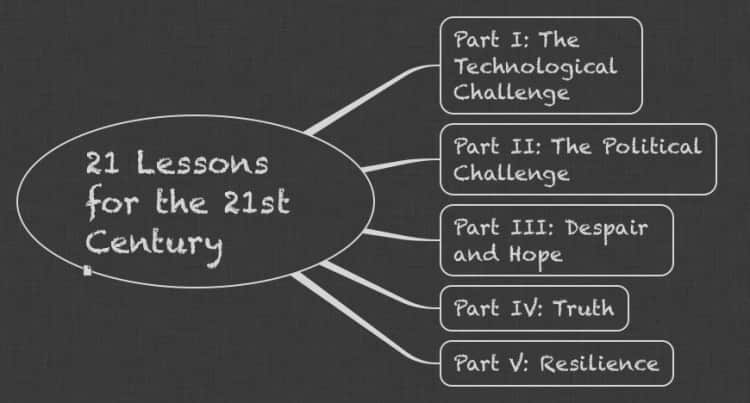
Creatures and the Human Future
It is useful to start the subject by stating that our author is an atheist in terms of religion. As we know from his other two books, he believes that people were happier in hunter-gatherer societies. In this context, the author states that people were happier in the periods when they saw themselves as equals to living beings before the agricultural revolution, and believes that after this revolution, people started to cage and torture living beings because they saw them as “in their service or created for them”. Questioning God in these sections and periods, the book explains that such abstract concepts are fictions produced to keep societies together.
Beginning his book by implying that history is not fair at all, Professor Noah Harari states that humanity and liberal democracy are under great threat in the new era, which he calls the “dual revolution”, where information technology, namely information technologies, and bioengineering come together. In this context, the book states that control and authority have passed from God to big technology companies with developments such as the fact that data has become very easy to store and preserve thanks to nanotechnology. Then, the big data revolution feeding artificial intelligence with algorithms, and also explains the harms of this.
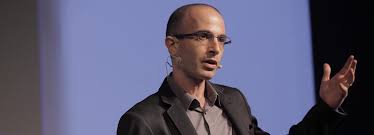
Harari, Generative AI and 21st Century
In this context, the author states that just as we leave the route of our journey to navigation today, in the future we will probably leave the route of our lives to robots, and touches on the risks of this. Although it is a very useful revolution when used in the fields of medicine and science, the possibility of this biotechnology and information technology revolution causing a disaster in the hands of a handful of powerful groups is also emphasized. In addition, the acceleration of Trump and the far-right and the need to have an answer to problems such as the immigration crisis are among the topics.
Of course, the solutions to these issues are generally attributed to artificial intelligence. Indeed, in the future, in a job market and society full of data analysts, data scientists and artificial intelligence experts, we will need to use a different language to solve problems.
On the other hand, this valuable work called 21 Lessons for the 21st Century has also received a lot of criticism. First of all, we need to emphasize the opinion of conspiracy theorists who say that Harari is a NATO man and that he writes in line with what they say. This is the most serious criticism against him. However, some critics who state that he does not say much different things in this book than in his previous books recommend that he renews himself.
As someone who read the book, I would like to state that I agree with this criticism. In other words, while reading the 21 lessons book, you will sometimes feel like you are reading the book Homo Deus. In fact, the author does not deny this much and states that some topics overlap because he talks about the near future in this book.
